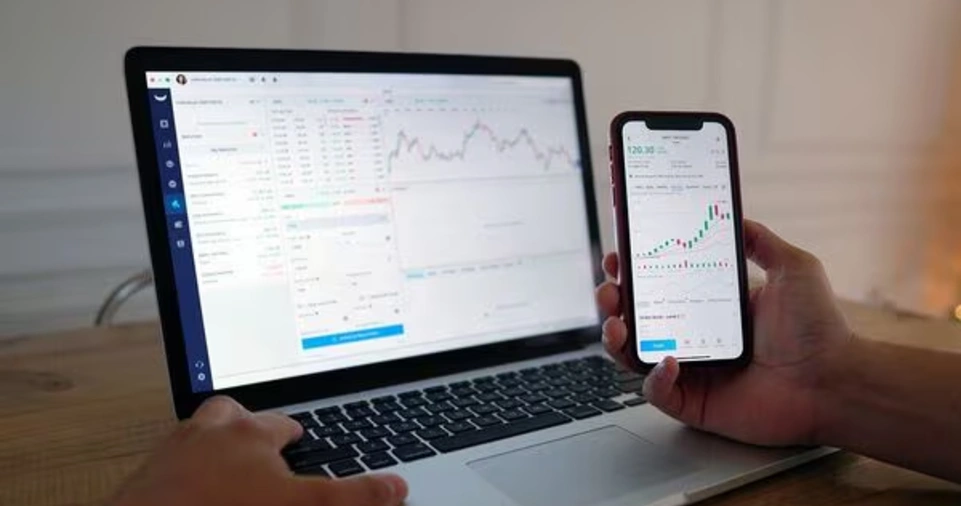NFTs (Non-Fungible Tokens) have emerged as a revolutionary aspect of digital assets, allowing people to own and trade unique digital items such as art, music, video, and even virtual real estate.
As the market for NFTs continues to grow, so does the need for securing these valuable digital assets.
Since NFTs represent ownership and authenticity, they hold significant value for creators, collectors, and investors alike.
However, the decentralized nature of the blockchain, which underpins NFTs, means there’s no central authority to turn to in case of theft or loss.
This makes it crucial for NFT holders to understand how to store and protect their assets properly.
Losing access to your NFT wallet, falling victim to hacking, or having your private keys compromised could lead to irreparable losses.
In this article, we will guide you through the best practices for storing and securing your NFTs, whether you’re a seasoned collector or a newcomer to the world of blockchain-based assets.
With these tips, you can ensure your NFTs remain safe, secure, and fully under your control.
Use a Secure Wallet for Your NFTs
Choosing the Right Wallet for NFTs
One of the most critical aspects of protecting your NFTs is selecting the right wallet for storage.
A wallet holds your private keys, which are essential for accessing your NFTs and executing transactions. Without your private keys, you cannot access or transfer your NFTs.
There are two main types of wallets that you can use to store your NFTs:
Hot Wallets and Cold Wallets. Each of these wallets has its own benefits and drawbacks.
Hot Wallets (Software Wallets)
Hot wallets are software wallets that are connected to the internet.
They provide quick and easy access to your NFTs, making them ideal for trading and interacting with NFT marketplaces.
Some of the most popular hot wallets include:
- MetaMask: One of the most widely used cryptocurrency wallets, MetaMask also allows users to manage their NFTs. It integrates seamlessly with NFT marketplaces like OpenSea, Rarible, and Foundation.
- Trust Wallet: This is a multi-currency wallet with robust support for NFTs and decentralized apps (dApps). It’s available for both iOS and Android.
- Coinbase Wallet: Known for its ease of use, Coinbase Wallet allows users to store NFTs securely and interact with the Ethereum blockchain.
While hot wallets are convenient, they are vulnerable to online threats such as hacks and phishing attacks.
If you are holding valuable NFTs, it’s advisable to limit your usage of hot wallets and consider more secure options.
Cold Wallets (Hardware Wallets)
Cold wallets, or hardware wallets, are physical devices that store your private keys offline, making them much less vulnerable to hacks.
Since they are not connected to the internet, cold wallets are considered the safest option for storing NFTs long-term.
- Ledger Nano S/X: Ledger is one of the most popular hardware wallets in the cryptocurrency space. It provides a secure environment for storing NFTs, with the added benefit of supporting a wide range of cryptocurrencies and tokens.
- Trezor Model T: Another top-tier hardware wallet, Trezor is known for its high-security features, including a large touchscreen and support for multiple blockchains and assets.
Cold wallets provide the highest level of security for NFT storage.
However, they do require more steps to access and trade your assets, so they are best suited for individuals who do not need immediate access to their NFTs.
Backup Your Private Keys and Seed Phrases
Why You Should Back Up Your Private Keys and Seed Phrases
When you create a wallet, you are typically given a seed phrase or private keys.
This phrase or key is essentially the master key to your NFTs and digital assets.
Without it, you cannot access your wallet or recover lost assets.
Backing up your seed phrase or private keys is not just a good practice, it’s an absolute necessity.
The phrase is usually made up of 12–24 words that are easy for you to remember but should never be shared with anyone.
Best Practices for Backing Up Your Seed Phrase
To ensure the safety of your NFTs, follow these best practices for backing up your private keys and seed phrases:
- Write Down Your Seed Phrase: Write your seed phrase on paper and store it in a safe, secure location. You can also store it in a fireproof safe to prevent damage from fire or water.
- Use Multiple Copies: It’s wise to store copies of your seed phrase in different secure locations. For example, you might keep one copy in a safe deposit box and another with a trusted family member.
- Do Not Store Digitally: Never store your seed phrase in an online file or cloud service, as they can be hacked or compromised. Physical backups are much safer.
- Avoid Sharing: Never share your seed phrase with anyone, including friends or family. If someone gains access to it, they can take control of your NFTs.
Backing up your private keys and seed phrases properly is the first line of defense in ensuring that you never lose access to your valuable NFTs.
Enable Two-Factor Authentication (2FA)
What is Two-Factor Authentication (2FA)?
Two-factor authentication (2FA) adds an extra layer of security to your wallet and other NFT platforms.
When enabled, 2FA requires you to verify your identity using two methods: something you know (your password) and something you have (your phone, security key, etc.).
For example, after entering your password, you might receive a one-time code on your phone or use an authentication app like Google Authenticator to approve the login attempt.
Benefits of Enabling 2FA on NFT Platforms
Enabling 2FA is a simple yet effective way to protect your NFT assets from unauthorized access.
Even if someone manages to obtain your password, they would still need your second factor (e.g., your phone or security key) to gain access to your account.
Most NFT marketplaces, including OpenSea, Rarible, and Foundation, support 2FA, so make sure to enable it on these platforms.
In addition to securing your wallet, also consider enabling 2FA on your email account, as it often serves as the gateway to resetting your wallet’s password or recovering access to your account.
Consider Multi-Signature (Multi-Sig) Wallets

What Are Multi-Signature Wallets?
Multi-signature (multi-sig) wallets are a type of wallet that requires multiple private keys to approve a transaction.
This setup ensures that no single person has complete control over the assets, which provides an extra layer of security.
For example, you might use a multi-sig wallet where three signatures are required to execute a transaction, and you only have one key while another trusted person holds the second, and a third party has the third key.
Advantages of Multi-Signature Wallets for NFTs
Multi-sig wallets are ideal for collectors who want to safeguard their assets and ensure that no single individual can make unauthorized transactions.
This is especially useful for NFT investments that involve large sums of money or when you need to involve multiple stakeholders in decision-making.
Popular multi-sig wallet solutions include Gnosis Safe and BitGo, both of which are widely used in the crypto community.
Store NFTs in Reputable Marketplaces
How to Choose a Secure NFT Marketplace
While many NFT collectors prefer to store their NFTs in personal wallets, you can also use reputable NFT marketplaces to store and display your NFTs.
However, not all marketplaces are created equal. When choosing an NFT marketplace, consider the following:
- Reputation: Choose platforms with a proven track record of security, customer support, and transparent business practices.
- Security Features: Look for marketplaces that offer additional security measures like 2FA, encrypted transactions, and secure withdrawal options.
- Insurance: Some NFT marketplaces offer insurance for assets stored on their platform, providing extra protection in case of loss or theft.
Some trusted NFT marketplaces include OpenSea, Rarible, and SuperRare.
These platforms have solid security features and provide options for collectors to manage their NFTs with peace of mind.
Use Encrypted Digital Storage for Your NFT Files
Encrypting Your NFT Files for Extra Security
While NFTs themselves are secured on the blockchain, the digital files associated with them (e.g., images, videos, and documents) can be vulnerable to theft or tampering if not protected. To secure these files, it’s important to use encryption.
Encryption ensures that your files are unreadable without the correct decryption key.
By using encrypted storage solutions, you can store the associated files of your NFTs securely and prevent unauthorized access.
Some options for encrypted storage include:
- Encrypted USB Drives: Store your NFT files on a physical USB drive that is encrypted with password protection.
- Encrypted Cloud Services: Services like Tresorit and pCloud offer encrypted cloud storage where you can securely store your NFT files and access them from anywhere.
This additional layer of protection ensures that even if your NFTs are lost or stolen, the digital files associated with them remain safe.
Be Cautious of Phishing Scams
How to Avoid Phishing Attacks
Phishing scams are one of the most common ways attackers steal NFTs.
These scams trick you into revealing your private keys or seed phrases through fraudulent emails, websites, or messages.
To protect yourself, always be vigilant and follow these tips:
- Check URLs: Always double-check the URL of any website where you enter your wallet credentials or personal information. Look for SSL certificates (the padlock icon next to the URL) to ensure the site is secure.
- Beware of Unsolicited Messages: Do not click on links or provide personal information in unsolicited emails, messages, or social media communications. Always verify the authenticity of the sender.
- Use Phishing Protection: Some wallets, like MetaMask, include built-in phishing protection. Enable these features for added security.
ALSO READ: How to Use NFTs for Business Branding and Marketing
Conclusion: Stay Vigilant and Secure Your NFTs
Storing and protecting your NFT assets is vital in ensuring that your digital collectibles and investments remain safe.
By using secure wallets, enabling two-factor authentication, backing up private keys, and staying vigilant against phishing scams, you can minimize the risks of losing your valuable NFTs.
Whether you opt for a hot wallet for easy access or a cold wallet for maximum security, always ensure that your private keys and seed phrases are backed up and stored in secure locations.
Additionally, multi-signature wallets and reputable NFT marketplaces can offer extra layers of protection, ensuring that your NFTs are kept safe from theft, hacking, or unauthorized transactions.
By following these best practices, you can enjoy the world of NFTs with peace of mind, knowing that your assets are secure.











